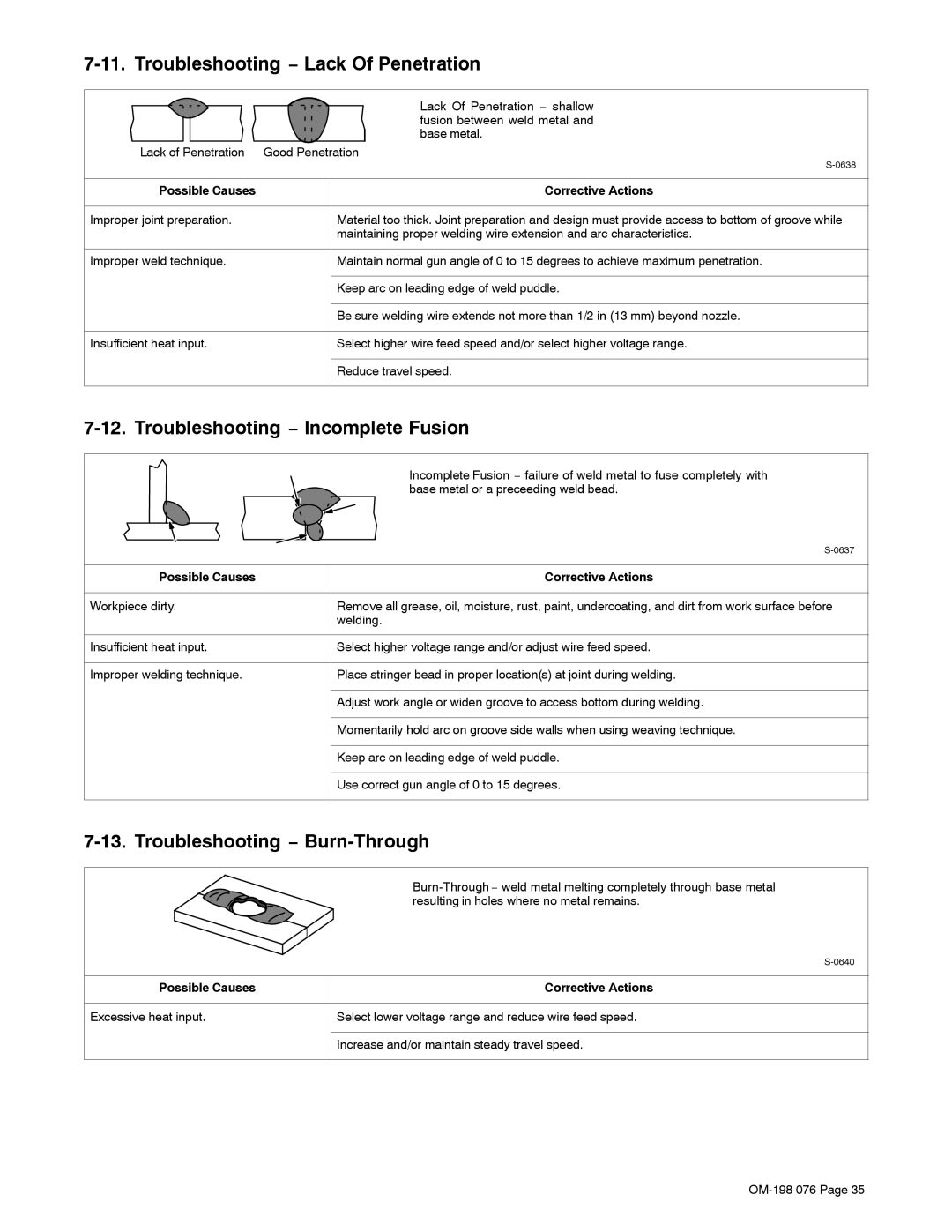
7-11. Troubleshooting − Lack Of Penetration
|
|
|
| Lack Of Penetration − shallow |
|
|
|
| fusion between weld metal and |
|
|
| ||
|
|
|
| base metal. |
|
|
|
| |
Lack of Penetration | Good Penetration | |||
|
|
|
| |
Possible Causes |
| Corrective Actions | ||
Improper joint preparation. | Material too thick. Joint preparation and design must provide access to bottom of groove while | |||
|
|
| maintaining proper welding wire extension and arc characteristics. | |
Improper weld technique. | Maintain normal gun angle of 0 to 15 degrees to achieve maximum penetration. | |||
| Keep arc on leading edge of weld puddle. |
| Be sure welding wire extends not more than 1/2 in (13 mm) beyond nozzle. |
Insufficient heat input. | Select higher wire feed speed and/or select higher voltage range. |
| Reduce travel speed. |
7-12. Troubleshooting − Incomplete Fusion
Incomplete Fusion − failure of weld metal to fuse completely with base metal or a preceeding weld bead.
| |
|
|
Possible Causes | Corrective Actions |
|
|
Workpiece dirty. | Remove all grease, oil, moisture, rust, paint, undercoating, and dirt from work surface before |
| welding. |
|
|
Insufficient heat input. | Select higher voltage range and/or adjust wire feed speed. |
|
|
Improper welding technique. | Place stringer bead in proper location(s) at joint during welding. |
|
|
| Adjust work angle or widen groove to access bottom during welding. |
|
|
| Momentarily hold arc on groove side walls when using weaving technique. |
|
|
| Keep arc on leading edge of weld puddle. |
|
|
| Use correct gun angle of 0 to 15 degrees. |
|
|
7-13. Troubleshooting − Burn-Through
Possible Causes | Corrective Actions |
|
|
Excessive heat input. | Select lower voltage range and reduce wire feed speed. |
|
|
| Increase and/or maintain steady travel speed. |
|
|
